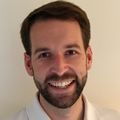
Towards commercial manufacture of pluripotent stem cell derived therapies
-
Rhys Macown
Senior Scientist, Cell and Gene Therapy CatapultBIOGRAPHY
In contrast to autologous cell therapies, allogeneic therapies do not require collection of starting material from patients and could: be manufactured in larger batches, be made available “off-the-shelf”, and potentially utilise established biopharma manufacturing technologies. Despite this, allogeneic therapies constitute half of pre-clinical trials and a third of clinical trials in the UK. In an addition to the potential for an immune response, another major barrier to the adoption of allogeneic therapies is current manufacturing cost which increases when using pluripotent stem cells (PSC) as starting material. The manufacturing process is often open and manual, utilising 2D, adherent culture systems and xeno or serum containing materials. As such, these processes are regulatorily challenging and impractical to scale-up to meet market demands. This talk will cover our work to date and future plans in addressing these barriers and realising the potential of PSC-derived allogeneic therapies.
The Cell and Gene Therapy (CGT) Catapult have been working to address some of the challenges of manufacturing processes for PSC derived therapies, towards improving commercial viability. We used regulatorily amenable starting materials, developed invasive and non-invasive methods for process characterisation, developed exemplar processes for the expansion of pluripotent aggregates in stirred tank reactors, and developed concentration and wash processes for large-scale PSC processing. CGT Catapult’s next development focuses are the scale-up and intensification of PSC expansion in stirred tank reactors, translation of differentiation processes to automated and scalable culture systems, and cost of goods reduction.
Towards commercial manufacture of pluripotent stem cell derived therapies
Please update your information
Certificate of Attendance
DOWNLOAD CERTIFICATE




